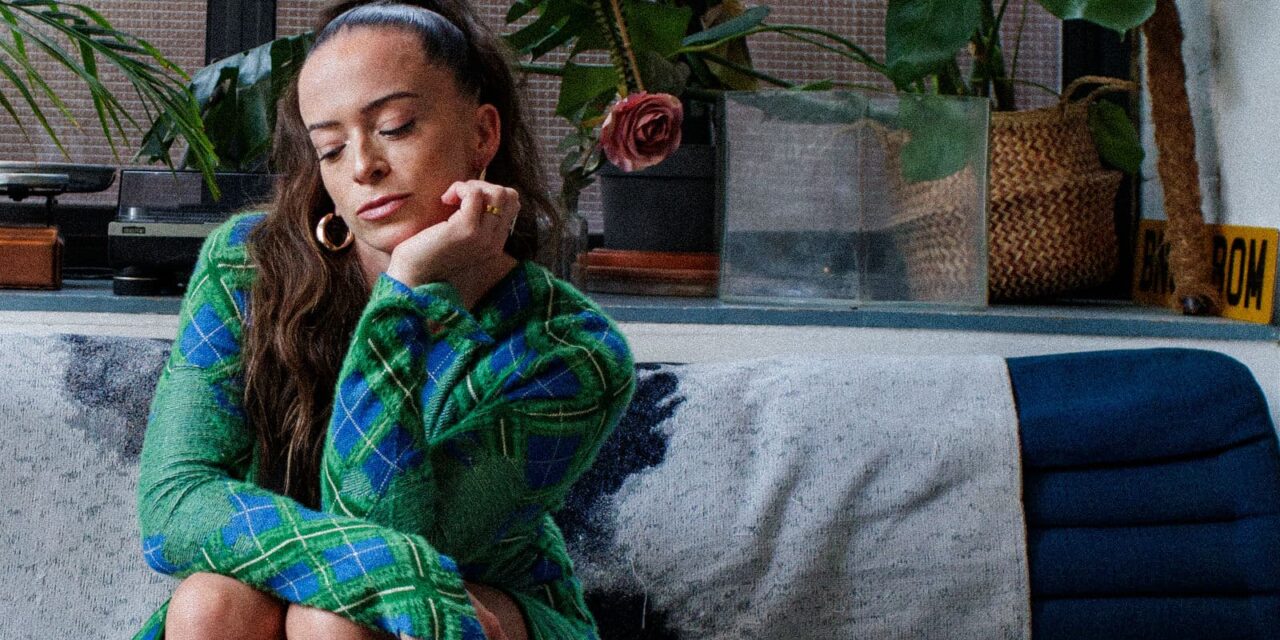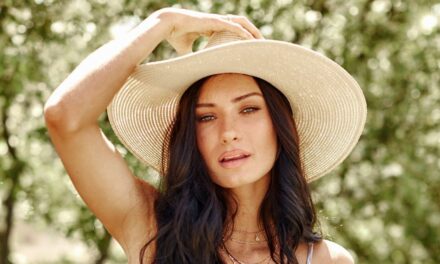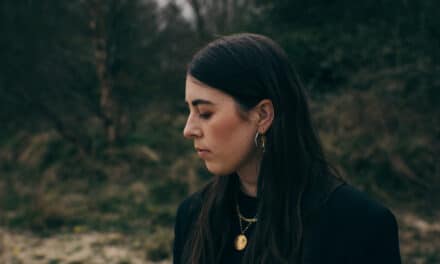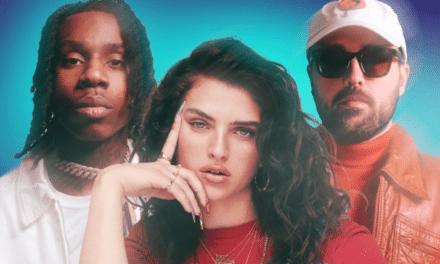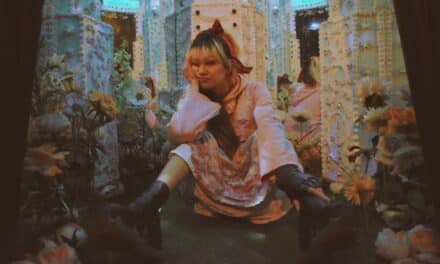Carrie Baxter has always known how to turn vulnerability into melody. With her latest single, “Under My Skin” (out October 1, 2025), the Irish-born, London-based artist dives deep into the ache of mixed signals and the bittersweet pull of illusion — where desire collides with truth and fantasy feels safer than reality.
Known for her rich, soul-soaked voice and jazz-infused sound, Baxter has carved a distinctive lane that blends neo-soul, R&B, and jazz into a heartfelt sonic diary. With over 80 million Spotify streams and appearances on BBC Radio 1, BBC 6 Music, Jazz FM, and RTE’s The Main Stage, she’s become a name synonymous with authenticity and emotional intelligence.
On “Under My Skin,” Carrie revisits the all-too-familiar story of falling for the idea of someone rather than the person themselves. “It’s about returning to a love that isn’t right, simply because the longing is louder than reason,” she explains. Anchored by nostalgic, 90s-inspired drums and her signature soul-driven warmth, the track feels both intimate and cinematic — a late-night confession bathed in amber light.
“I think the song speaks for itself through its lyrics,” Baxter shares. “What I know for sure is that it marked a turning point for me as a woman — a song written from a place of growing self-worth and value. The lesson that came with this person was something I didn’t want to face, but I knew I had to. And there was no better way to process it than through my music.”
It’s a theme that echoes throughout her catalog. From her 2020 debut EP Placebo — described by I Was Just Thinking… as “an audio therapy session” — to her introspective 2021 follow-up What Now, Baxter has consistently used her art to translate life’s messiest emotions into something transformative.
With “Under My Skin,” Carrie Baxter continues to affirm her place as one of the UK and Ireland’s most emotionally literate voices — one who finds beauty in heartbreak, power in vulnerability, and music in every moment of becoming.
Your sound pulls from neo-soul, R&B, and jazz but always feels distinctly your own. How did your journey from hip-hop and jazz influences to confessional storytelling shape the voice we hear today?
I found hip-hop as a teenager and it massively shaped me. It’s the backbone of the sonic world I paint. Jazz, for me, is freedom so when I started singing I felt I could do whatever I wanted, and those swingy, syncopated rhythms just lived in me. Both rap and jazz taught me how to tell a story and create emotional connection – real life, real issues, deep expression. Hip-hop’s rhythmic delivery crosses over into jazz too so after years of living in those sounds, telling my own story just felt like a natural extension, albeit, scary.
With over 80 million streams and recognition from BBC, COLORS, and Wonderland, how do you balance the external validation with the inner process of making music that feels true to you?
The recognition is a blessing and you always want your work to live to its fullest potential but I did struggle with external validation for a long time when I first started, to be completely honest, it’s been a journey. This next batch of songs is probably the first time I’ve felt pretty free from it. I try to stay close to why I started, keep a handful of people around me that I really trust and make the music that is my truth. If the songs connect, that’s beautiful and I’m grateful people feel something when they listen. There are ups and downs in the music industry, you live and you learn and you can never fully predict what will happen so I generally try to remind myself, make the music you want to hear.
Placebo was described as an “audio therapy session,” while What Now wrestled with uncertainty and heartbreak. Do you see each project as a diary of where you were emotionally at the time?
Yes, 100%. My music almost always reflects my life and I can still hear exactly where I was when I listen back. Placebo felt like my whole childhood and teenage years coming to the surface & it was my first time writing and releasing my own project. With What Now I felt super lost and under pressure after putting out such a big piece of myself, I genuinely didn’t know what to do next (hence the title). Each record really is a diary of that moment in my life.
Your new single, “Under My Skin”, captures that magnetic tension of longing against reason. Why do you think we’re often more drawn to fantasy than to clarity in love?
I think we’re wired to be drawn to the mystery. Our minds are always imagining, hoping , projecting – we can create an entire world in our heads if we want to. I think, in love, fantasy lets us project our hopes and ideals onto someone, whereas clarity forces us to confront the truth and truth can be uncomfortable. The unknown keeps possibility alive, it feeds that sense of magic were looking for ‘Under My Skin’ sits right in that space, where desire and reason collide, and where you have to ask yourself whether you’re in love with the person or with the idea of them.
You’ve said the song marked a turning point in your self-worth as a woman. What personal realizations did writing it bring to the surface?
I think the realisations came before the track and the song followed as a result. I was forced to look at patterns Id be repeating and the way id been measuring my worth in relationships. I realised a lot of what I thought was romance was actually me compromising parts of myself. The song felt like a turning point because for the first time I was coming from a place of self respect instead of self doubt.
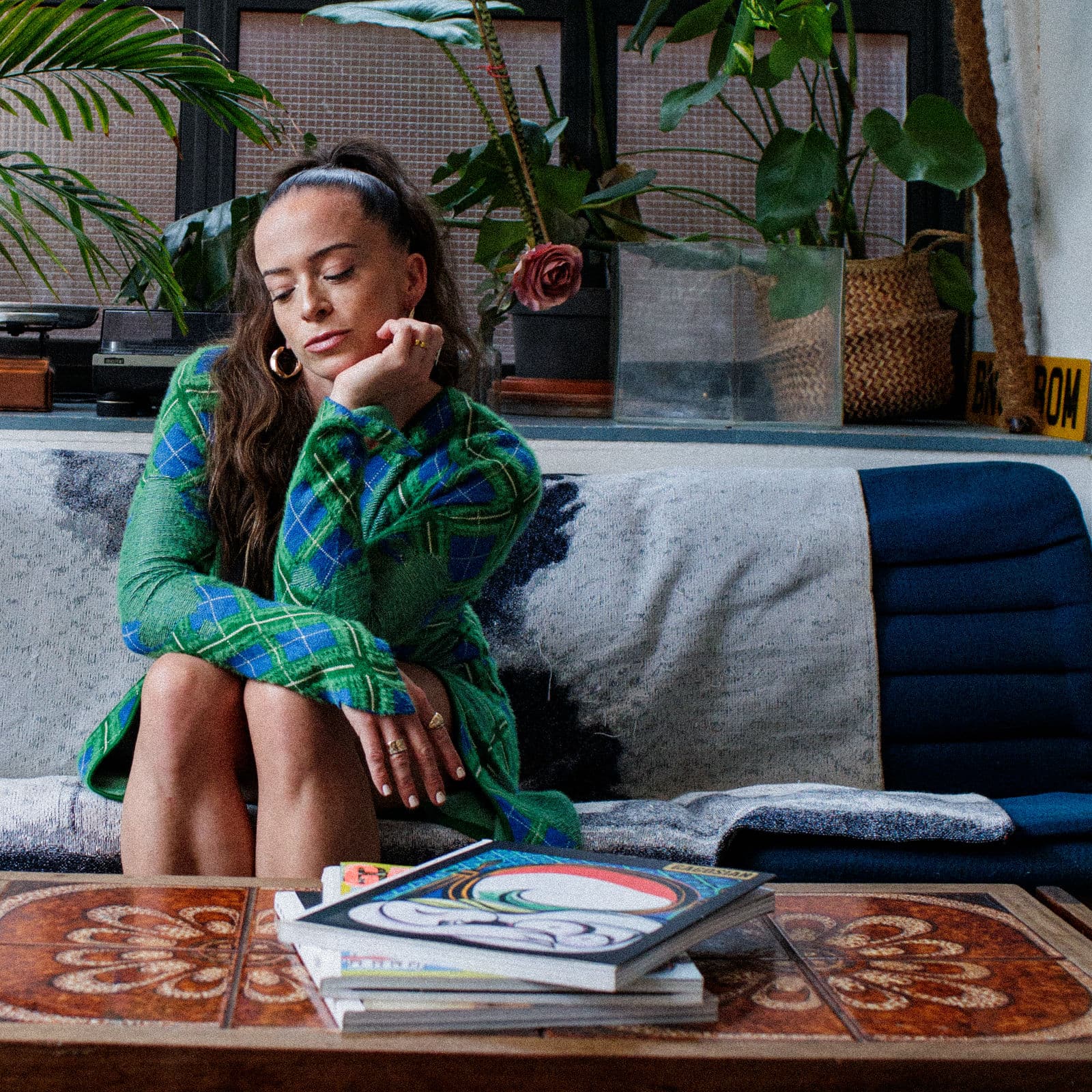
Sonically, “Under My Skin” leans on nostalgic, 90s-style drums. How does that retro palette connect with the deeply modern, raw themes in your lyrics?
Those drums just feel like home to me, they’ve got that warmth and bounce I grew up on. There’s something comforting and nostalgic about that palette, which makes a nice contrast to the really raw, present-day themes in the lyrics. It’s almost like wrapping a hard truth in a familiar sound.That tension between past and present is what makes ‘Under My Skin’ feel alive to me – kinda like the push and pull of the lyrics.
Vulnerability has always been at the center of your work. Do you see songwriting as a way of healing, or more as a way of holding yourself accountable?
Bit of both I think. Firstly its healing, I think its how I make sense or meaning out of what Im going through. Then it also keeps me honest, kinda like holding up a mirror to myself. Once I write it, Im aware, Ive acknowledged what I know now, theres no real going back from that.
Across your discography, you’ve been unafraid to explore the darker, messier sides of love and self-discovery. What do you hope listeners take away from hearing those confessions?
I hope they feel seen & heard. Not everyone is able to write and talk about theirs lives and so I figure, If I can do that doing what I love then maybe somebody will hear their own story in my work and feel a bit more understood, less alone and perhaps even a bit braver in their own life.
You’ve been praised for stepping outside of your comfort zone. What risks are you most excited to take in your next chapter?
Honestly, I’m not sure yet. This next work already took a lot of risk , it pushed my sound into a place I’ve always wanted to reach and let me tell my story as raw as I could. Right now I’m just enjoying sitting still and taking in three years worth of growth. I think the next big risk will probably be stepping into my artistry full-time. I still work a day job, and it would be pretty special to be able to give all my time and energy to being an artist.
If music is how you process the lessons life throws at you, what lesson are you currently learning — and do you think it will make its way into your next release?
I’d probably have to release an entire book to explain everything I’ve learned recently, haha. But yes, in short, the next few releases embody the lessons of the past three years: resilience, mental health, self worth and redemption. Those themes are woven through the new music.

